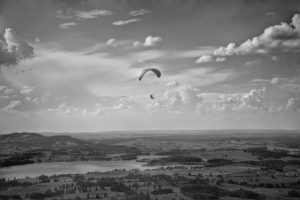Cultivating a Sense of Wonder in Adult Life
Remember when you were a child and everything seemed magical? The world was full of wonder and excitement, and there was always something new to explore. As we grow older, it’s easy to get caught up in the daily grind and lose that sense of wonder. However, cultivating a sense of wonder in adult life is not only possible, but also essential for our well-being. In this article, we’ll explore why wonder is important, and how we can bring it back into our lives.
What is wonder?
Wonder is the feeling of surprise, awe, and amazement at something beautiful or unexpected. It’s a state of mind where we’re fully engaged and present, and our senses are heightened. It’s different from happiness or joy, which are emotions that we often strive for, but wonder is more spontaneous and elusive. It’s that feeling of being a child again, where we can see the world with fresh eyes and appreciate the beauty and mystery in it.
Why is wonder important in adult life?
Many of us have experienced wonder as children, but as we grow older, it tends to fade away. This is unfortunate, as wonder has numerous benefits for our mental, emotional, and physical well-being.
Boosts creativity
When we’re in a state of wonder, our minds are open to possibilities and new ideas. When we’re curious and engaged, we’re more likely to think outside the box and come up with creative solutions. This is especially important in adult life, where we’re often faced with challenges and problems that require creative thinking.
Reduces stress and anxiety
Wonder is a powerful antidote to stress and anxiety. When we’re in a state of wonder, our minds are focused on the present moment and not worrying about the past or the future. This can help reduce stress and anxiety and improve our overall well-being.
Increases gratitude and appreciation
Wonder also helps us appreciate the world around us and be grateful for what we have. When we’re in a state of wonder, even the most mundane things can become fascinating and beautiful. This can help us shift our perspective and see the world in a more positive light.
Improves relationships
Wonder can also improve our relationships with others. When we’re curious and engaged, we’re more likely to be fully present and listen to others with an open mind. This can strengthen our connections and help us build deeper and more meaningful relationships.
How can we cultivate wonder in adult life?
Now that we know why wonder is important, let’s explore some ways to bring it back into our lives.
Try new things
One of the best ways to cultivate wonder in adult life is to try new things. This can be anything from a new hobby to traveling to a new destination. When we step out of our comfort zone and experience something new, we’re more likely to feel that sense of wonder and excitement.
Spend time in nature
Nature has a way of captivating us and filling us with wonder. Take some time to disconnect from technology and immerse yourself in nature. Go for a hike, visit a local park, or simply sit outside and appreciate the beauty around you.
Engage your senses
We often rely on our sense of sight, but wonder can be experienced through all of our senses. Try tasting a new food, listening to a new genre of music, or touching different textures. By engaging our senses in new and different ways, we can open ourselves up to wonder.
Be curious
Curiosity is the key to wonder. Make an effort to approach the world with a curious mindset. Ask questions, seek out new experiences, and challenge your assumptions. The more curious we are, the more likely we are to experience wonder in our daily lives.
In conclusion
Cultivating a sense of wonder in adult life is not always easy, but it’s worth the effort. By embracing wonder, we can boost our creativity, reduce stress and anxiety, and improve our relationships. So, let’s make an effort to see the world with fresh eyes and appreciate the beauty and mystery around us.










